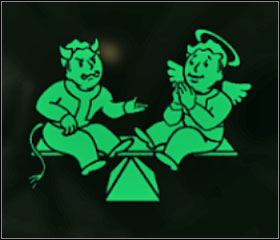
Amy Kalson wrote an interesting piece over at Gamasutra about guns and video games. Curious to see how shooting guns in real life might augment or improver her as a video game developer, Kalson went out to the shooting range with some experienced professionals and, well, it was love at first shot:
“I loved it almost instantly. It wasn't the feeling of power or the knowledge that I was using a deadly weapon that I liked. It was the concentration and precision – the stillness it took to line up the sights, relax, and squeeze the trigger. It was much more zen and stress-relieving than I ever expected it to be. Guns demand your attention. You cannot think about anything else when you hold one in your hand. I loved the way my mind would go completely quiet while shooting. Also, the gun went boom and blew a hole in something, and that was satisfying, in the same way popping bubble wrap is.”Naturally, I encourage everyone to read the full piece, but what interested me was her position on the duties of game developers to their games and their audiences.
Dissociating the virtual shooting of guns from their real world equivalent, she argues that there’s nothing wrong with becoming better at an activity in and of itself:
“I believe that giving someone better hand-eye coordination isn't a negative thing at all. Learning is inherently good. Learning – getting better at something over time – is always a positive thing. It is up to the learner to take that knowledge and use it for good or evil. Just because I know how to shoot a gun – virtual or real – certainly doesn't mean that I will ever shoot anyone.”She goes on to explain that it’s not for game developers to teach players morality. Instead, it’s their duty to make gamers better at playing games:
“I believe that we, as game developers, do have a responsibility to our players, but not to be their moral compass. Rather, it is our duty to make our players the best virtual players of our games that we possibly can. I want my players to learn to be experts at playing my game. If this translates into skills far above and beyond the scope of my games, then great. It means I've done my job well.
However, it is not up to me to dictate the morality of how my players use those skills beyond the scope of my creation. That is the choice of every individual. And if my players do decide to take up the sport of shooting in real life, then perhaps they will feel less frustration and waste less ammo, which is always a good thing.”And yet this seems preposterous. To absolve game developers of all moral responsibility goes a step too far. Are video games really such neutral and passive objects as to lack any moral weight? Are the developers who construct and create the worlds, events, and mechanics of video games not in some way responsible for what then results, both in the game and outside of it?

As many know by now, the tragic violence that occurred in Norway resulted from the actions of Anders Behring Breivik. In his over 1000 page manifesto, Breivik name dropped left and right, but those referenced were mostly ignored as the list piled up. Thus, while some latched on to his mention of titles like Call of Duty and World of Warcraft as evidence of their negative influence, most people wrote it off as just more ill concieved ranting.
And yet Breivik’s encouragement of other would-be terrorists to train for their atrocities by playing these games does make one wonder: why shouldn’t developers insert their own moral framework into the games they create?
Kalson admits:
“…but what happens with your eye and your steadiness of hand is actually quite similar. Your brain learns how to get your eye to tell your hand where to go to make something happen.If what Kalson describes is in fact true, why shouldn’t game developers bestow, if not a moral declaration with their games, a moral argument that comes out through the internal dynamics of gameplay?
We, as an industry, have actually done a pretty good job in our virtual simulations of mimicking the skills that are needed in real life to successfully hit a target.”
We don’t just teach our children how to drive a car, we also teach them not to drive drunk or recklessly endanger the lives of others by speeding and other careless behavior. Who would argue against a responsible gun owner training another in the use of firearms, and adding along the way, "handle this responsibly, don’t be trigger happy, keep it away from kids, and oh, by the way, don’t use it to shoot innocent men, women, and children."
Of course, most FPSs already incorporate lose moral arguments into their gameplay. Even if games like Medal of Honor and Call of Duty could go further in introducing realistic consequences for certain actions, the overall moral world views espoused often remain painfully clear.
Not only is there nothing wrong with that, but video games wouldn’t be the controversial media dynamo they’ve become without them. Believe it or not, some novels espouse poor morals, and while that doesn’t mean they should be banned or burned, it does mean we should hold their authors morally accountable for their creation.

The same goes for video games. If some developer created an FPS simulator that lets players rampage through a neighborhood, killing everyone in their sight indiscriminately, and even rewarded them with points, bonuses, and power-ups on top of it, I would hold that developer accountable for relingquished their “moral compass” duties.
Does that mean that if a person who played that game then committed similar acts in the real world, both they and the games developers should be criminally punished? No. Telling someone to shoot others is not the same as shooting them yourself. And simply dissolving the moral boundaries between killing “bad” people and killing people in general by setting up an amoral digital sandbox would be still further removed. But certainly those developers would be morally condemnable for their lapse in judgment and failing in their ethical responsibilities.